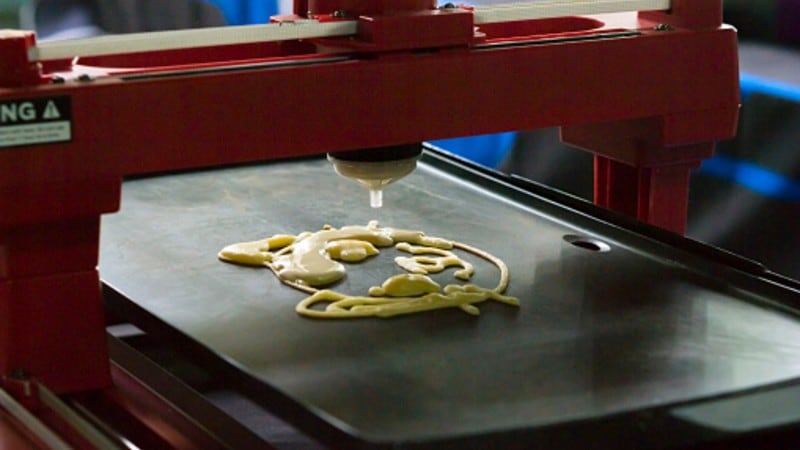This will then lead to what Dr Jorg Hager, expert in genetics and nutrigenomics at Nestle Institute of Health Sciences, calls the “virtuous cycle of personalised nutrition”.
He was speaking at our Growth Asia Summit on the topic “Providing the right food for diverse consumer needs and benefits: Precision nutrition from a product perspective.”
Nestle is one of the forerunners in personalised nutrition, having launched solutions such as MyMenu IQ aimed at improving the nutritional quality of meals by suggesting different food combinations.
Its effects in nutritional management have been studied in a clinical trial involving individuals suffering from Crohn’s disease – a type of inflammatory bowel disease (IBD).
The company’s subsidiary firm Pure Genomics also uses personalised genetic tools to provide lifestyle and nutritional recommendations.
However, the common pitfall among the industry is that personalised nutrition solutions are more about the products, with little consideration on the entire ecosystem.
For example, product companies usually do not think about the steps involving health data measurement, said Dr Hager.
“If we were to develop a personalised or precision nutrition, we don’t have to think only about the product, we have to think about the whole ecosystem, that's probably the biggest take-home message,” he said.
Personalised or precision nutrition will revolve around four steps.
The first step is to use wearables or mobile app for tracking and measuring health data.
The second is to analyse the data collected, which could be performed via artificial intelligence (AI), and then displaying the data to users in a meaningful way.
The third is to provide product, diet, and lifestyle recommendations based on the analysis of the health data.
The fourth is to measure the effects and repeat step one to three again. This is where adjustment would be made to the previous set of product, diet, and lifestyle recommendations.
He said it was important for personalised nutrition firms to understand that “all these works together, and you can't just choose one of those and not the other”.
“Basically, it's what we call a virtuous cycle of precision nutrition, which consists of some kinds of measurements, which can be in the form of questionnaires, and then do something with it, analyse it, and then bring it back to the consumers in the form of clear recommendations,” he said.
As new technology emerges, Dr Hager believes that there will be more devices developed to help consumers measure their health metrics at their convenience.
Why personalised nutrition?
Personalised nutrition is important because a size fits all approach to nutrition has its limitations, as nutrient supplementation alone might not necessarily help an individual meet his / her nutritional goals.
Following the recommended dietary allowance (RDA), for example, does not necessarily meet nutritional requirements.
Dr Hager pointed out an example in the US, where a survey showed a weak correlation between the daily intake and the amount of vitamin B12 that was detected in the body.
“Basically, there's very weak correlation between the two. More importantly, you also see a fraction of people who have intake above the RDA never get to sufficiency for vitamin B12.
“There are multiple reasons for that, some of these reasons are biological, and some of these are parameters that we can measure, and that's where personalised nutrition comes in,” he said.
In addition, consuming the same food could induce very different blood glucose responses in different individuals, as seen in a study by Zeevi et al published in Cell in 2015.
A personalised diet, on the other hand, has been shown to be superior to the Mediterranean diet for prediabetes management, based on a study by Ben-Yacov et al published in the journal Diabetes Care in 2021.
Even the regulatory authorities such as the European Food Safety Authority (EFSA) has recognised the limitations of RDA, said Dr Hager.
“They very clearly stated that these measures such as the RDA and the EAR (Estimated Average Requirement) are not individual goals for your nutrition…We should not consider that these are enough to keep you healthy,” he said.
Finding the sweet spot
Also, just taking supplements alone without assessing the body’s condition might do more harm than good.
This is seen in the case of an Australian study, which assessed the impact of DHA supplementation for different birth outcomes.
One finding was that women who already had a high level of DHA did not benefit from the supplementation. The study was conducted by Middleton P et al, with findings published in 2018 in Cochrane Database Systematic Reviews.
“Not only did they not benefit from the supplementation, but the supplementation had also actually worsened the risk for some of the outcomes, especially for preterm births.
“What we saw is that there's actually a sweet spot for supplementation or fortification, and so, it's not that the more it is, the better it is,” said Dr Hager, adding that this was an area where precision nutrition could play a role.





